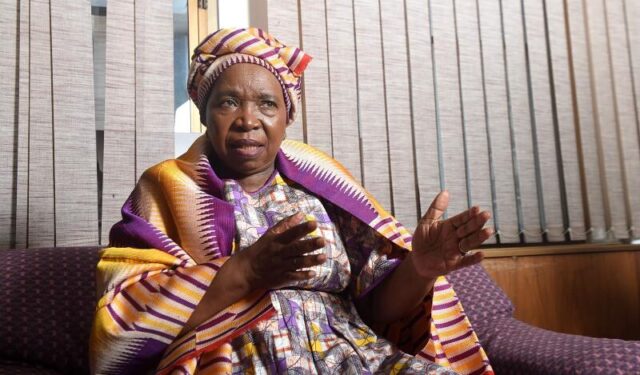A legal showdown is looming between the Organisation Undoing Tax Abuse (Outa) and the Department of Co-operative Governance and Traditional Affairs in the Pretoria High Court over the constitutionality of the now-gazetted electricity state of disaster.
A LEGAL showdown is looming between the Organisation Undoing Tax Abuse (Outa) and the Department of Co-operative Governance and Traditional Affairs (Cogta) in the Pretoria High Court over the constitutionality of the now-gazetted electricity state of disaster.
The government forged ahead this week with gazetting the disaster-management regulations on electricity constraints despite a court application by Outa to declare it unlawful and have it set aside.
In the answering affidavit, Cogta Minister Nkosazana Dlamini Zuma argued that declaring a state of disaster was necessary because the existing legislation and contingency arrangements were not sufficient to effectively deal with and mitigate the impact of the electricity crisis on the economy, essential infrastructure and South Africans.
She said that special circumstances warranted the declaration of a national state of disaster, including that the National Disaster Management Centre intended to classify the electricity supply constraint a national state of disaster to prevent the possible progression to a total blackout from occurring.
“The electricity constraints faced by the country continued to worsen. As a result, load shedding escalated in its frequency and severity during January and the beginning of February 2023. This has been the trend since 2019 and 2020, with a record 5 761GWh of outages recorded in 2022, from January to September, which is more than double the figure for 2021. By the end of January 2023, Eskom had announced the need for higher stages of load shedding, and for longer periods than before,” Dlamini Zuma argued.
She added that she had to consider the impact of the severe electricity supply constraint and the risk mitigation measures necessary to manage the electricity supply constraint, on the economy, essential infrastructure, and the public. “As the electricity crisis had progressed, Eskom and municipalities had been forced to increase the severity and frequency of load shedding.
This intensified the impact of the electricity crisis on the economy and the South African public, Dlamini Zuma said. She added that most sectors, and the general public, could manage or mitigate the impact of Stage 2 or Stage 3 load shedding for short periods. However, this became far more difficult once the country was facing sustained load shedding at Stages 5 and 6, where electricity was turned off for blocks of up to four hours more than twice a day.
In addition, Dlamini Zuma said, the continuous switching on and off of the power supply caused a range of “knock-on” effects, including damage to essential infrastructure.
However, the state of disaster declaration has been met with fierce opposition by opposition political parties and civil society formations, with Outa opting to challenge its legality. Outa has argued in the Pretoria High Court that the state of disaster would not make any difference to the country’s electricity woes, and was instead susceptible to a new wave of corruption.
Outa’s application is against President Cyril Ramaphosa, Dlamini Zuma, the head of the National Disaster Management Centre Dr Bongani Elias Sithole, Mineral Resources and Energy Minister Gwede Mantashe, Public Enterprises Minister Pravin Gordhan, National Assembly Speaker Nosiviwe Mapisa-Nqakula, National Council of Provinces chairperson Amos Masondo and Eskom Holdings.
In an affidavit Outa’s executive director advocate Stephanie Fick argued that the decision to declare the disaster was irrational, arbitrary and unlawful. “It is the result of a crisis created by the government itself which has been more than 15 years in the making. It is unnecessary because laws already exist to enable urgent action to address the energy crisis.
“Years of state capture, mismanagement and a dysfunctional culture cannot be a rational justification for the declaration of a national state of disaster,” added Fick. She also outlined that the state of disaster granted extraordinary powers to officials to make far-reaching decisions without parliamentary oversight.
Fick said that this was a real concern in the light of the extensive looting enabled by emergency procurement during the Covid-19 state of disaster. “If the decision to declare a national state of disaster due to this self-created crisis by the government is allowed to stand, it will open the floodgates for further such disasters to be declared in various other sectors that suffered from similar dysfunction, mismanagement, and corruption,” Fick said.
She said that declaring a national state of disaster would in effect become a tool for the government to circumvent accountability and hide behind the excuse of a disaster to reach an apparent “quick fix” for problems that were years in the making.
“We are bringing this application because Outa will not stand by when the government grants itself extraordinary powers with reduced oversight to deal with a self-created energy crisis.”








